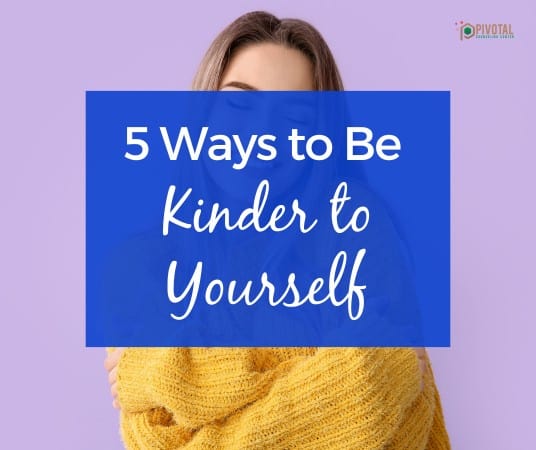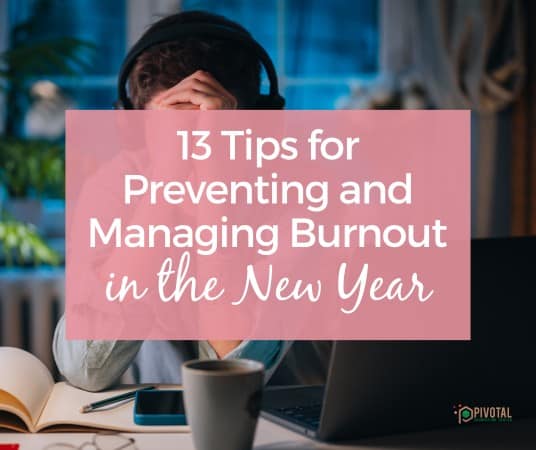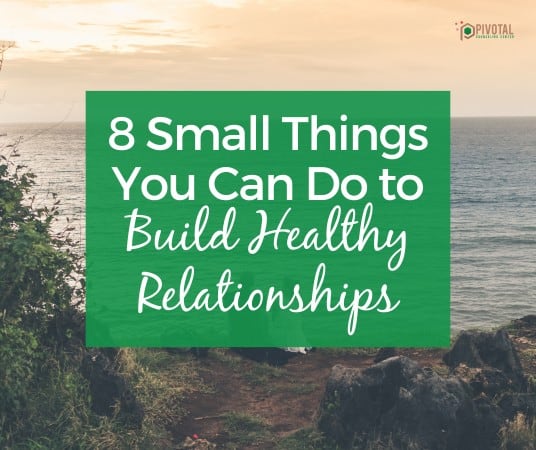
Are you actively kind to yourself?
You might be wondering what it means to be kind to yourself. Think of how you would show kindness to someone you care about. How can you show some of that love and tenderness to yourself? Maybe that means working on the way you talk to yourself, or making time to rest. Being kind to yourself requires you to be in touch with your mind and body so you can check in on what you need and meet those needs for yourself.
Most of us aren’t kind to ourselves. We learn early on from the media and the culture around us that there’s always something that can be improved. After all, that’s how people are able to get you to spend money! The message that you’re not good enough as you are is delivered and reinforced in a million different ways, and often without you even consciously realizing it. It takes purposeful action to rediscover that you actually are enough, and that you don’t need to be mean to yourself to make it in the world.
Life is hard enough without being unkind to yourself. When you’re kind to yourself it’s easier to tune into your mental and physical needs. It’s easier to communicate with the people you care about, because you know that you’re worthy of expressing yourself. Life just feels easier when you know that you’re in your own corner and you have your own back.
So, how can you start to be kinder to yourself? Here are 5 ideas to try:
Notice your inner critic
Most people have an inner dialogue going on with themselves, whether they realize it’s happening or not. This inner dialogue is often automatically negative, and can be called your inner critic. It’s that little voice that says to you “You’re not good enough,” or that has rude commentary on everything you do. Until you teach yourself how to tune into these messages, you might not even know how you’re speaking to yourself.
A constant stream of negative dialogue about yourself adds up. Even if you don’t really believe there’s anything wrong with you, having it reinforced by that inner voice in your head can lead you to question yourself.
Negative self-talk is something that most people deal with at some point in their lives. Our brains do what they can to make meaning out of situations, so they’re always working to find explanations, even if they’re not always correct.
The first step to changing the way you talk to yourself is to notice it. Try to tune into that voice in your head and keep track of what it says to you. Maybe write it on your phone or in your journal to get an idea of the messages you tell yourself. You might be surprised.
Use affirmations
It might sound silly to just say positive things out loud to yourself, but using affirmations has been shown to help change the way you think about yourself. Affirmations are positive statements that you declare to be true, such as “I am worthy of kindness.” It might feel strange to actually say that out loud to yourself, but affirmations can help you bridge the gap between the negative stories you believe about yourself and how you want to feel about yourself.
Using positive affirmations can help you rewrite the stores you tell about yourself and increase your level of confidence and self-esteem. When you feel better about yourself, it’s even easier to be kind to yourself and keep that feeling going.
Make time for rest
Another way to be kind to yourself is to prioritize rest. Most of us don’t get nearly enough rest, and it can lead to burnout, depression, anxiety, and more. It’s one thing to believe that rest is good and quite another to believe that you deserve rest, and far too many folks don’t feel like they deserve to rest. Everyone deserves rest. It doesn’t matter what you have or haven’t done, you are allowed to rest, and it’s necessary to keep yourself functioning and happy.
How do you make time for rest? Doomscrolling while watching Netflix doesn’t count. Rest is rejuvenating. It’s also often the last thing you actually want to do. Even so, prove to yourself that you’re worthy of rest by making it a priority.
Question the stories you believe about yourself
We all have things we believe about ourselves. Many times, we internalize these messages as young children, or through our experiences growing up.
You might believe that you’re unlucky in love, for example. Where did that message come from? You might have had a few bad relationships, or had your heart broken. One way to deal with the pain of that is to try to explain it to yourself. Instead of focusing on specific examples of what went wrong in these relationships, you have decided that you just have a built-in flaw that means you are unlucky. Deciding that you’re just unlucky is less painful than recognizing that there were maybe things you could have done differently in the relationship to have a different outcome.
The first step to changing this is noticing the stories you tell about yourself. Similar to the way you look out for the voice of your inner critic, look out for when a story about yourself comes up. Where did it come from? Is it true, or does it need updating? Try to approach yourself with curiosity and compassion as you rewrite the stories you believe about yourself.
Be a caring parent to your inner child
Many of us had experiences as children that were painful or confusing. We all have an inner child, or the child version of ourselves that we carry in our minds. Sometimes you might even feel like your inner child is crying out for help or needs some support that they didn’t get when you were an actual child.
Even if you have a good relationship with your parents or caregivers, no one is perfect. That doesn’t make them bad parents, it just means they’re human. There are a lot of reasons why your parents weren’t able to meet your needs when you were young, but you can give yourself a new experience by meeting those needs for yourself as an adult.
When you feel that little version of you ask for something, see how you can be there for them. Maybe that means spending the day doing things you loved as a kid, or just reassuring yourself that you will take care of you. Learning how to be a caring parent to your inner child can help reinforce the idea that you deserve to be taken care of and treated with kindness.
Do you feel like you could benefit from being kinder to yourself?
Working with a therapist can help you find new ways to treat yourself well and manage the complicated feelings that come with being a human. Get in touch with us today to work with one of our Elgin, Lake in the Hills, or Woodstock therapists.
Pivotal Counseling Center is now accepting Medicaid including Blue Cross Community Medicaid, Meridian Medicaid, and Molina Medicaid for outpatient counseling.








